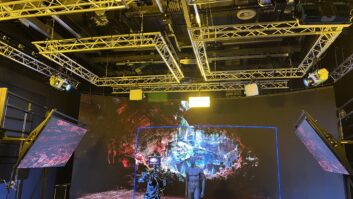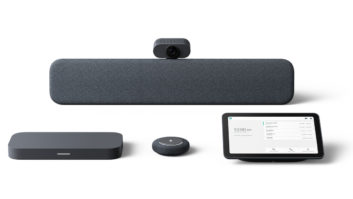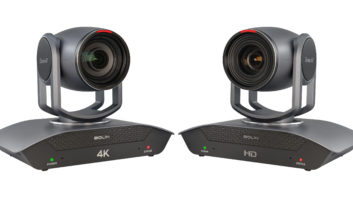
Business leaders are always looking to predict the next big working trend. But it’s not enough to simply have an opinion on what the future will look like. You need to make tangible preparations to be ready for it.
Jabra analysed over 100 trends across society and conducted a survey of 76 academic and industry experts to find the most prolific, trustworthy predictions for the future of working. Armed with this data and expertise, we designed six potential future scenarios for work that will impact four core pillars of businesses, employees, workplaces and technology over the next five years.
Work Future #1: Focus on Employee Wellbeing
Employers are mindful of their duty of care to employees and want to support employees in being healthy and happy. Businesses will embrace technology to achieve this, with AI and automated solutions that will be integrated into workplaces to monitor and enhance employee health and wellbeing. Tools such as AI therapy chatbots, health tracking platforms and wearables will enable businesses to spot and support potentially overworked or stressed employees, leading to greater employee satisfaction and a more positive working environment.
Work Future #2: Agile Superteams
Business models will shift from a large core team to smaller teams that are supported by a network of partners with a mix of expertise. Known as a ‘Hollywood’ working model, the best people will be selected for any given project.
Seamless cross-platform connectivity and communication, as well as cloud-based storage and access, will be crucial to accommodate these agile superteams.
Work Futures #3: Sustainability at the Heart of Business
Amidst escalating climate change concerns, businesses are taking more responsibility. Business travel will continue to decrease thanks to communications platforms and associated technology. Local, sustainable manufacturing will gain importance, energy conservation will become a priority, and companies will focus on reusing and recycling materials, updating products, and buying or creating hardware that lasts.
AI and automation will use data to ensure buildings are energy efficient by monitoring temperature, automating power supplies, and optimising company processes.
Work Futures #4: Office Everywhere
The future office will be dynamic and untethered from fixed locations. Work will happen everywhere and universal cloud technology and communications platforms will enable employees to work from wherever suits them.
Advanced hardware, with noise cancellation and open-plan designs, will encourage collaboration and diverse workspaces, reducing background distractions and fostering social interactions. Virtual meetings, conversations and training will become more immersive with the help of AR, VR and more sophisticated audio and video software integration.
As a result, organisations will tap into a more diverse talent pool, as employees will no longer need to live within a commutable distance from an office. Without the requirement to work in-office five days a week, businesses may instead rent smaller offices, with smart workspaces and office furniture providing seamless connectivity.
Work Future 5: Investing in the Whole Employee
Employees will need support when adapting to workplace change. Combining data and AI will lead to rapid growth in personalised coaching, enhancing skills like speech, language and giving presentations. This will help increase employee productivity and improve time management, providing personalised goals to help employees feel confident and motivated at work.
Work Future #6: Consumerisation of Enterprise
The line between work and leisure will blur as employees adopt a hybrid, flexible work style. Rigid tech policies will yield to personalisation, allowing employees to choose their working styles, environments, devices and apps. This tailoring, including customised interfaces and AI assistants, will enhance productivity and job satisfaction, adding significant perceived value at minimal cost.
With IT leaders no longer the sole tech decision-makers, technology companies must cater to a wider and diverse customer base. Their technology will need to be clearly labelled with feature benefits and uses to ensure consumers buy the right device. Devices also need to be durable to withstand increased usage outside the workplace, with interoperability across different devices and operating systems.
In conclusion…
Existing research frequently highlights the lack of responsiveness from multinational corporations to their employees, leading to a loss of trust. Jabra’s latest study has confirmed that businesses must align with the evolving needs and expectations of their workforce, supporting employee demands for a focus on wellbeing and sustainability, alongside flexible working habits. Taking and implementing changes in-line with these trends will be the key to driving success and innovation for all industries in the years to come.







